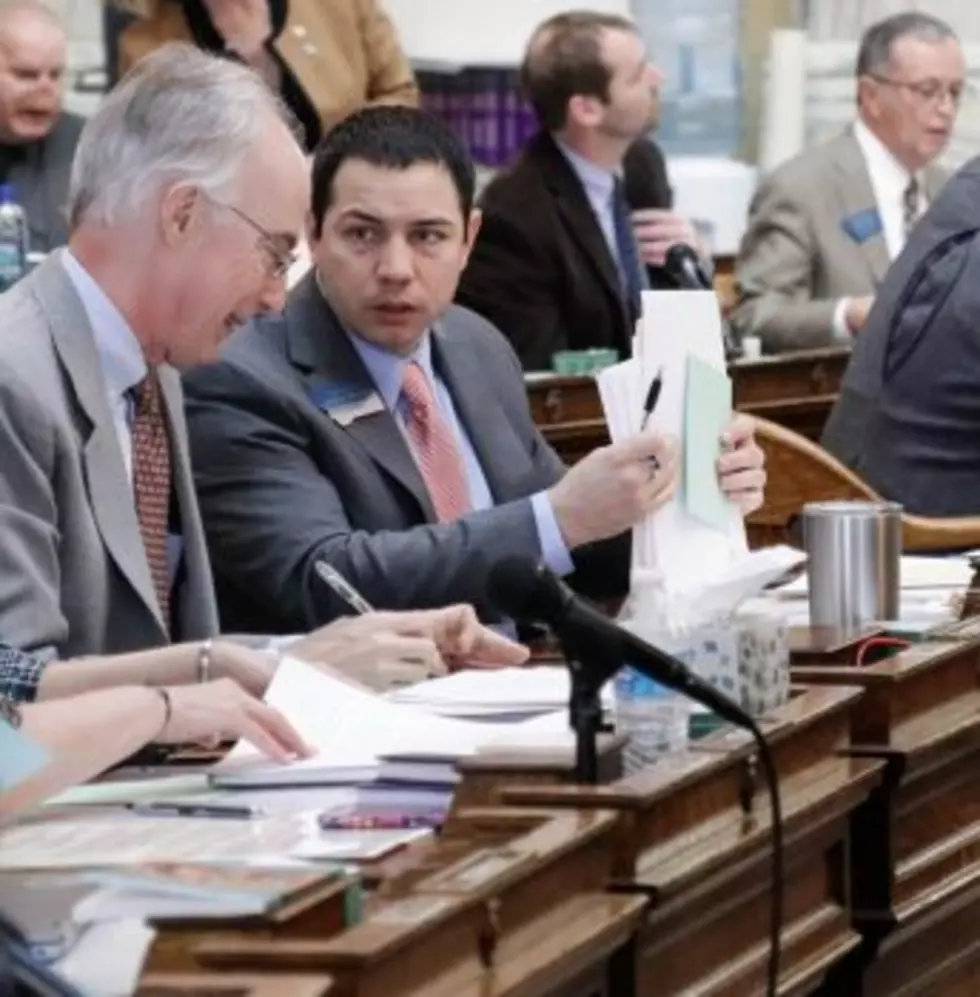
Bison transplants, voting rights among losses cited by Native lawmakers this session
(Daily Montanan) Native American Caucus members of the Montana Legislature said they had their work cut out for them going up against a Republican majority this session.
“The losses were many,” said Sen. Susan Webber, D-Browning, pointing to efforts she said would restrict Native American’s access to voting and undo wildlife conservation efforts.
However, Montana’s Native American Caucus did see some victories. Programs to preserve Native American languages were funded, extended funding for the Missing and Murdered Indigenous Women Taskforce was approved, and money was allocated to promote the recruitment and retention of teachers in Indian Country and rural Montana.
Rep. Marvin Weatherwax, D-Browning, echoed Webber’s statement, saying, “It was rough from the start, and we already knew we were beat every day we walked in. Every day we walked in, we knew we were going to lose something.”
One of the barriers to passing pro-Montana Native American legislation is racism, Webber said.
“What’s hard about it is every time we have an Indian bill and an Indian carries it, there is a lot of racism,” she said.
Missoula Democrat Sen. Shane Morigeau said, “It’s always a challenge to explain to people in the Legislature that Native American Montanans are Montanans, and I always feel like we are starting at square one every session with the stereotyping.”
Morigeau said two bills that harmfully impact Native Americans are House Bills 530 and 176, which would end same-day voter registration and restrict ballot collection efforts. Western Native Voice has said it will fight a bill that restricts ballot collection.
“Having same-day voter registration ensures your voice is heard. It is important for folks in Indian Country who don’t get mail or don’t get their mail on time or don’t want to travel hundreds of miles,” he said.
Webber said restricting ballot collection efforts would be detrimental to elderly and disabled Native Americans who rely on get-out-the-vote efforts to cast their ballot.
Issues surrounding wildlife conservation were largely unsuccessful in the eyes of several members of the Native American Caucus. Members disapproved of bills passed that would allow for neck snares to be used on wolves, black bears to be hunted by hounds, and delisting efforts of grizzly bears.
But members expressed specific concerns about bills relating to buffalo and bison — specifically, HB302, which gives county governments the power to veto bison transplant efforts.
“I’ve been in the Legislature for four sessions now, and every session we have had to fight for the buffalo,” Webber said.
All together, Sen. Mike Fox, D-Hays, said he views the bill as an attack on tribes looking to rebuild their bison and buffalo populations. Members also took issue with HB318, which changes the definition of wild bison.
Together, he said, the bills “put buffalo management back 20 years.” Additionally, he said, “As a freshman senator, it was an eye-opening experience going into a legislative session where Republicans had complete control … it was a little bit disheartening.”
The two Republican members of the 12-person caucus could not be reached for comment by the time of publication.
Battling through the barriers, caucus members said one of the session’s big successes was extending the Missing and Murdered Indigenous Women Taskforce and creating a Missing Indigenous Persons Review Commission within the Montana Department of Justice.
“It’s still an epidemic,” Morigeau said of Montana’s missing and murdered indigenous women. Native Americans account for 7 percent of Montana’s population, but they account for 26 percent of the state’s missing persons, according to a KRTV article.
While Webber said she is happy about the MMIW’s extension, she said she wished there would have been money included for search training on reservations: “Everyone wants to help but we don’t know how.”
Members of the caucus said they were also pleased to see funding secured in the biennium budget for Montana Indian Language Preservation and the Indian Community Economic Development Fund.
Browning Democrat Rep. Tyson Running Wolf’s bill to establish the “grow your own” teach grant program was another success point for the caucus. The bill allocates $500,000 over the biennium to create incentives for students to start teaching and stay teaching in rural education systems.
“It was an important effort because it signaled the importance of trying to recruit teachers into Indian communities and rural areas where it is often very difficult to recruit and retain teachers,” said Morigeau, who carried the bill in the Senate.
